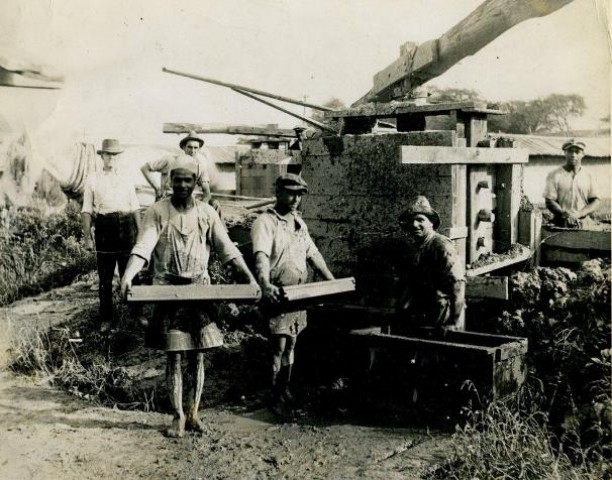Brick making was an important industry in Windsor even in its colonial days. Bricks used in the early colonies improved chimney construction and lessened the risk of catastrophic fires. Unfortunately, the bricks necessary for these improvements came from England and importing them was a slow and laborious process.
The discovery of a deposit of clay, approximately two-to-five miles wide, running from modern-day Wethersfield to Windsor Locks, helped facilitate brick construction in the colonies. The Connecticut brick industry started in Hartford in 1635 but made its way to Windsor by 1675. Windsor’s rich clay deposits, when mixed with water and sand, produced high-quality bricks that supported the local industry for over 100 years.
Industrial brick making in Windsor began in 1830 with the founding of a firm by William Mack. Mack was a descendant of a Hessian soldier who fought for the British in the American Revolution. His company, which eventually became known as the Mack Harvard Brick Company (the “Harvard” added after the Mack Company provided bricks used in buildings on the Harvard University campus), set up headquarters on Pleasant Street in Windsor and remained a staple of the town’s industry for six generations.
By the middle of the 19th century, close to 40 brickyards operated in Windsor. These were joined in the early 20th century by such competitors as Elijah Mills & Sons and the Windsor Brick Company. By this time, the Mack family alone produced six million bricks per year. They then doubled their capacity in 1923 with a move to machine-made brick. Millions of Connecticut bricks from Windsor, North Haven, Berlin, and Hartford made their way to urban centers throughout Connecticut and New York during this time.
Brick architecture remained in style throughout much of the early 20th century until the presence of new building materials, mainly concrete and steel, overtook the use of brick in the construction industry. Windsor’s brick industry remained in operation, however, until the 1960s.









